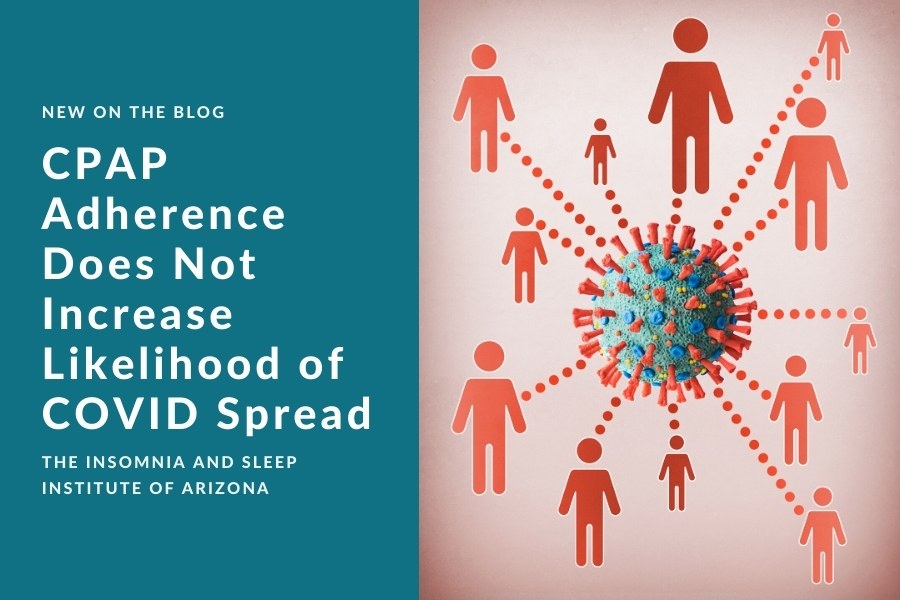It is estimated that 20 percent of the adult population in the U.S. has obstructive sleep apnea (OSA)—and that 90 percent of those people are undiagnosed. That means tens of millions of people are struggling with a very common sleep disorder that can be addressed with lifestyle changes and CPAP therapy. The Insomnia and Sleep Institute of Arizona is home to sleep specialists who set the standard in sleep medicine. Here, every consultation is with a sleep expert who can diagnose sleep disorders like OSA so you can get on the fast track to testing and treatment. We are proud to serve you as the Face of Sleep Medicine in Arizona, and you do not need a referral from a GP to schedule your consultation.
Although just 10 percent of adults with OSA are correctly diagnosed, many of these patients do not opt for or correctly adhere to CPAP therapy—the gold standard in treating OSA. Other means of treatment include changes such as losing excess weight (if applicable) or addressing other comorbidities. If you have OSA, getting the right diagnosis and being fitted with the right CPAP technology for you is critical to achieving enough high-quality sleep. If treating OSA is so seemingly simple, why do so many people avoid it?
CPAP Adherence
There are some people who do not realize how cutting edge, innovative, and integrated today’s CPAP machines are. There are various options for nose/mouth pieces and even travel-sized CPAP machines for those often on the go. One of the most common reasons a patient does not adhere to CPAP therapy is because of a wrong fit or they were incorrectly matched with the right CPAP tools for them. This is why it is paramount to work with the best sleep experts to address your OSA. If left untreated, or if a person does not routinely adhere to CPAP usage, the consequences can be severe. Untreated OSA is linked to a host of comorbidities including increased risks of stroke and heart disease.
However, there is another reason some people today do not adhere to CPAP usage standards—COVID. This is especially true for those who are hospitalized for non-COVID reasons and want to ensure they stay protected. COVID-positive patients do not want to spread it to those around them (and, in turn, may want to avoid using CPAP). However, recent research in Thorax found that “non-invasive breathing support [like CPAP] to treat patients with moderate to severe COVID-19 in hospitals isn’t linked to a heightened risk of transmitting the infection to others.”
The researchers specifically mention CPAP and high-flow nasal oxygen (HFNO) in their research. They found that these machines “produced little measurable air or surface viral contamination,” making adherence to continuous positive airway pressure safe even when staying and sleeping in environments with many others. The study took place at the University of Birmingham, Queen’s University Belfast, the Universities of Warwick, Liverpool, and Edinburgh, and the University Hospitals Birmingham NHS Foundation Trust.
CPAP and COVID
CPAP has long been considered an “aerosol-generating procedure,” which was thought to expose those around them (i.e. other patients and healthcare workers) to an increased infection rate. This is because CPAP seemed to create particles with viruses that could contaminate nearby surface and air, which would call for extra control procedures like segregation of patients and PPE. However, in the study of 30 patients diagnosed with moderate–severe COVID-19 in three different British hospitals, just 4 percent of air samples tested positive at the conclusion of the study.
Patients were split into three groups. Each group was given CPAP, HFNO, or supplemental oxygen. The goal was to compare how much air and surface was contaminated with SARS-COV-2 post-exposure. Three different air and surface samples were taken from each group environment. Researchers found that neither the CPAP or HFNO groups were linked with “significantly more contamination” than the supplemental oxygen group. In fact, none of the CPAP group samples (air and surface) tested positive. Researchers are now calling for a comprehensive reassessment of infection control approaches related to support methods like CPAP.
If you have OSA or suspect that you do, CPAP has long been the best means of addressing this common condition. It all starts with a consultation with a sleep specialist. Contact The Insomnia and Sleep Institute today by calling the office or completing the online form.





